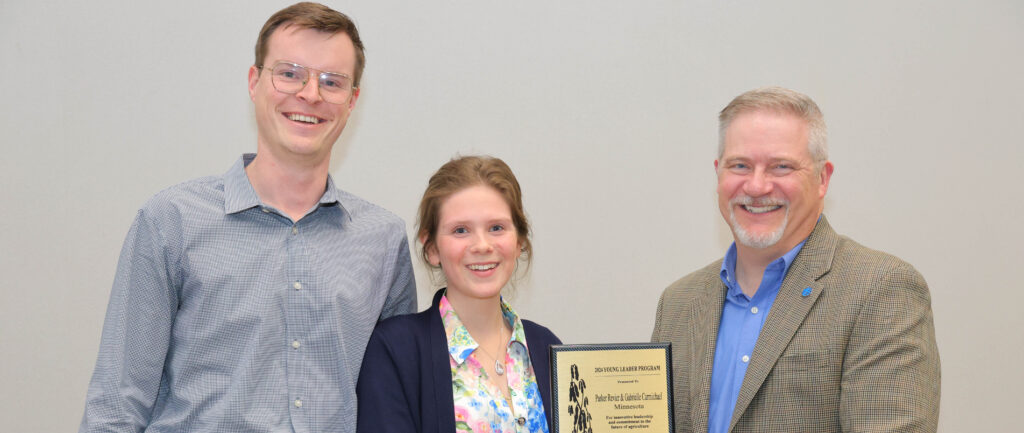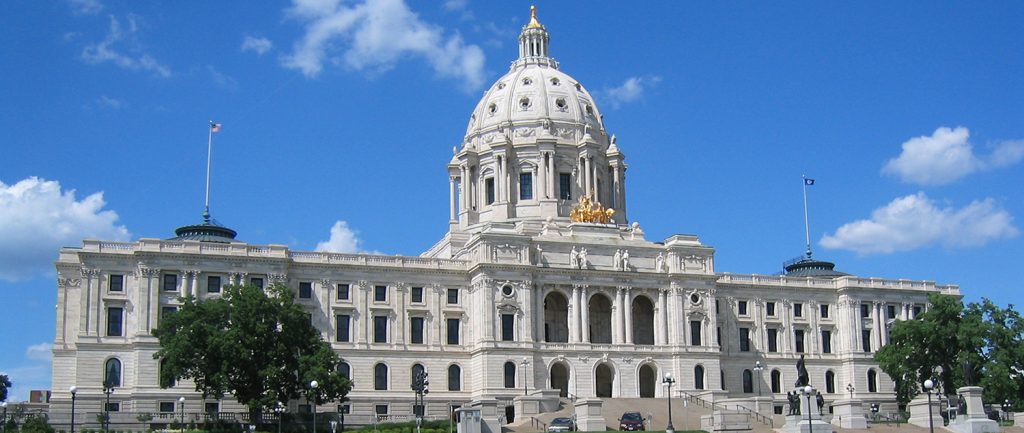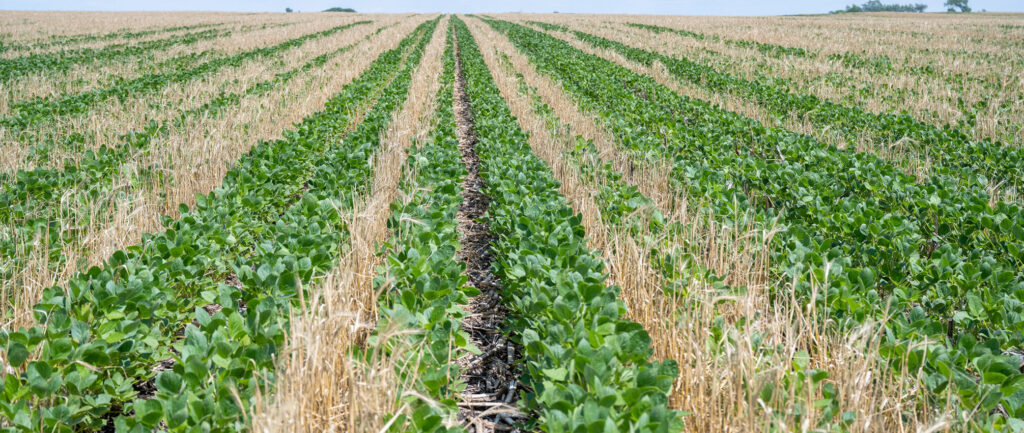Prior to the start of MN AG EXPO, the Minnesota Soybean Growers Association finalized its 2022 policy resolutions Tuesday during its Annual Meeting in Mankato.
“This was a very constructive meeting. The resolution process was smooth and efficient,” MSGA President Mike Skaug said. “Thanks to our delegates, we now have a clear direction on our path ahead in 2022.”
The meeting began with an introduction from Sen. Tina Smith, who expressed her support for MSGA’s positions on biofuels, affordable health care and infrastructure.
“You are the backbone of Minnesota agriculture,” Sen. Smith told the crowd during a virtual appearance.
Minnesota Department of Agriculture Deputy Commissioner Andrea Vaubel discussed her department’s priorities, and Rep. Paul Anderson (R-Starbuck) forecasted the upcoming Legislative Session, which begins Jan. 31. Following the meeting, MSGA leaders held a private meeting with Gov. Tim Walz and outlined the policy issues MSGA will be advocating for this year.
“Ag has always had to innovate,” Gov. Walz said during his 10-minute speech on the trade show floor. “In every single case, ag has been able to deliver.”
Each session has its own unique themes, and this year – with an intense election, a divided legislature, redistricting and a record budget surplus all on the docket – figures to be one-of-a-kind. But, as always, MSGA farmer-leaders and our lobbying team will be rolling up their collective sleeves to get the job done for Minnesota’s soybean farmers.

“We’re ready to hit the ground running, whether we’re meeting virtually or in-person with legislators,” Executive Director Joe Smentek said. “We feel good about the year ahead.”
MSGA’s Top 2022 Policy Priorities
Rural Infrastructure
MSGA was successful in advocating for $70 million toward rural broadband resources in 2021, and will seek more infrastructure funding in 2022. With Minnesota eligible to receive billions in federal infrastructure funding, MSGA will continue to press elected officials to support expanding rural infrastructure – roads, bridges, wireless, broadband, etc. – throughout Greater Minnesota. Grower leaders will ensure rural areas get the most bang for their buck by creating a robust system that can handle heavier trucks and move the growing ag economy forward.
Biodiesel
This year MSGA celebrates the 20th anniversary of biodiesel becoming law. Since its formal implementation in 2005, MSGA has protected and grown the state’s minimum blending requirement during the summer months, culminating in the historic move to B20 in 2018. MSGA’s lobbying team works hard each session to ensure biofuels withstand various degrees of opposition. This session, MSGA will impress upon elected officials and the Walz administration to show that biodiesel continues to provide timely solutions, both economically and environmentally. MSGA will also underscore the need for a Low Carbon Fuel Standard that focuses on biofuels, not electric vehicles.
“We have to protect biodiesel, each and every year,” Skaug said.
The Ag Innovation Campus
Three years after earning $5 million in support from the Legislature, MSGA continues promoting the Ag Innovation Campus in Crookston (MSGA is a founding member). During the 2021 session, following MSGA lobbying efforts, lawmakers approved a provision that lifts a weight restriction on trucks hauling soymeal west of Highway 2 and Highway 75 north of Crookston to the Canadian border, a major regional soybean market. MSGA is also seeking American Rescue Plan funds to help offset historic construction increases due to the pandemic, helping to ensure the Campus stays on track to begin production later in 2022 and transform Minnesota’s ag economy.
“Our commitment to the Ag Innovation Campus is unwavering,” Gov. Walz said. “This is as project we’re glad to support.”
Taxes
From homestead credits to tax conformity to school bonding to sales taxes, MSGA strives each year to reduce the tax burden carried by Minnesota farmers. And MSGA’s efforts have paid off, big time: Thanks in part to MSGA’s proactive leadership in recent years, Minnesota farmers and businesses have enjoyed nearly $200 million in crucial tax relief. With farmers facing unprecedented input costs this growing season, MSGA will endeavor to lower those tax burdens, helping to keep farmer profitable.
Protecting Pesticides
During the 2021 legislative session, MSGA ensured that farmers weren’t saddled with unnecessary pesticide fee increases, saving producers millions in registration costs. MSGA also joined the farm community and other ag groups in preventing the passage of House bills that would have banned the dicamba herbicide and allowed cities to enact their own pesticide regulations. MSGA stands ready to voice its opposition to any similar bills this session.
“This meeting is the roadmap for the year ahead,” Vice President Bob Worth said.
MSGA depends on its membership base to sustain its mission. Click here to join the nation’s oldest state soybean advocacy organization.




